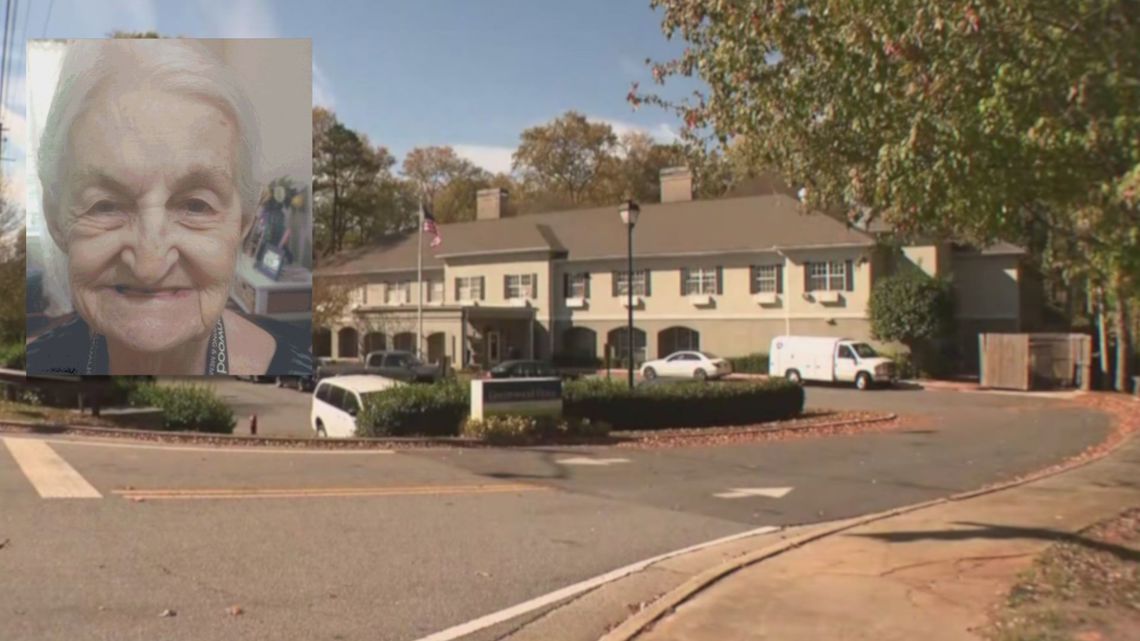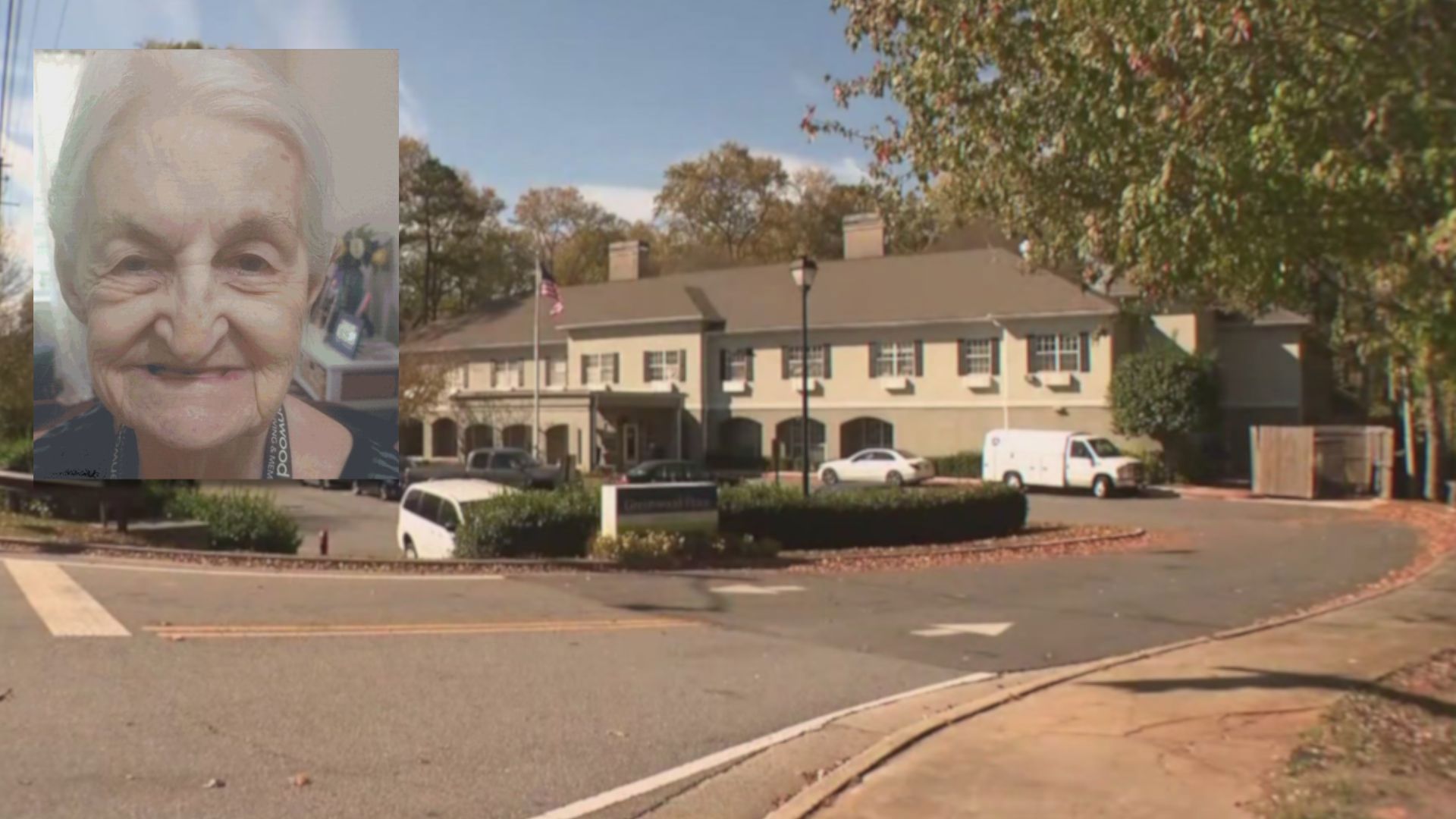MARIETTA, Ga. — A missing person investigation turned into a death investigation after an elderly woman was found dead near a pond in Marietta on Monday.
Marietta Police Department said Greenwood Place Assisted Living & Memory Care in Marietta called on Saturday morning around 9:30 about a missing resident, 89-year-old Patricia Miele.
Police said the facility reported Miele was last seen around 11 p.m. on Friday.
"When our officers responded to that scene, they were told from the staff the last time that resident, 89-year-old female, had been seen was the night before at 11 o’clock at night," said Chuck McPhilamy with MPD. "There were already red flags there that why had it been so long that now it’s 9:30 in the morning on Saturday."
Police said another thing they noticed was a lack of security footage available.
"Yes, we checked for video. Unfortunately, to our dismay, there wasn’t video available," McPhilamy said. "And that already raised another red flag because you have to think like an investigator now and say, well, if there isn’t video evidence, then how do we even know she left the facility?"
11Alive learned from MPD that Miele’s family said she was a memory care resident at the facility.
"Your memory care residents are typically the ones that have more behavioral episodes that come with a lot of agitation or paranoia that can lead to a lot of wandering and elopement," said Nancy Pitra, the director of government affairs for the Georgia chapter of the Alzheimer’s Association. "They may forget where they are. They think they’re not somewhere they’re supposed to be. They don’t sleep at night."


11Alive asked Pitra about rules and regulations surrounding assisted living and memory care facilities in the state.
"In 2020, there was legislation passed called the Senior Care Reform Act that actually improved the standard that we had for assisted living communities and large personal care homes," Pitra said.
She said it also created certified memory care centers.
"These secured units now have a certification process to have that part of your wing at that community be able to provide that care," Pitra said. "It also included training requirements around dementia for their direct care workers and anyone on staff."
Pitra said part of that legislation involved increasing the minimum staffing levels.
"And so for the certified memory care units, they’re required to have two staffed direct care workers at all times, and then there is a ratio, and all this is based on the size of the facility," she explained. "So, during the day in the memory care unit, you need to have one per 12, and at night, I believe it’s one per 15. But two all the time."
She said maintaining proper staffing is key because memory care residents often don’t have normal sleeping hours.
"That’s why it’s really important to have more than one person in the wing at all times. Because if you’re in taking care of someone in a room, you don’t have that other individual on the hall, then you can miss that someone might come out of their room or may wonder at midnight or one in the morning because they don’t have normal sleeping hours like other residents that are in long term services and support facilities do," Pitra said.
Pitra also explained facilities are required to keep their records up to date. She said surveyors will come out and look at facilities to see if they are meeting their staffing quotas.
According to the rules and regulations of the state, certified memory care centers must also meet a list of requirements.
The requirements include security standards like:
An effective automated device or system to alert staff to individuals entering or leaving the center in an unauthorized manner. An assisted living community need not use an automated alert for an exit door when the particular exit is always staffed by a receptionist or other staff member who views and maintains a log of individuals entering and leaving the assisted living community. If the exit door is not always staffed, then the assisted living community must activate an automated alert when the door is not attended.
The Alzheimer’s Association added that certified memory care facilities are required to be locked to provide safety for their residents. It also said that while cameras are not required for entrances and exits at memory care facilities, they can be a huge help for staff to prevent patients from wandering off and to provide extra security.
11Alive asked Greenwood Place about its security protocols.
Officials there sent a statement that said they are "deeply saddened" to learn of the death of Miele. They said they are unable to comment on specifics and asked for privacy for the residents at the facility. They added that its onsite team "remains completely dedicated to the service and care of our community members."

